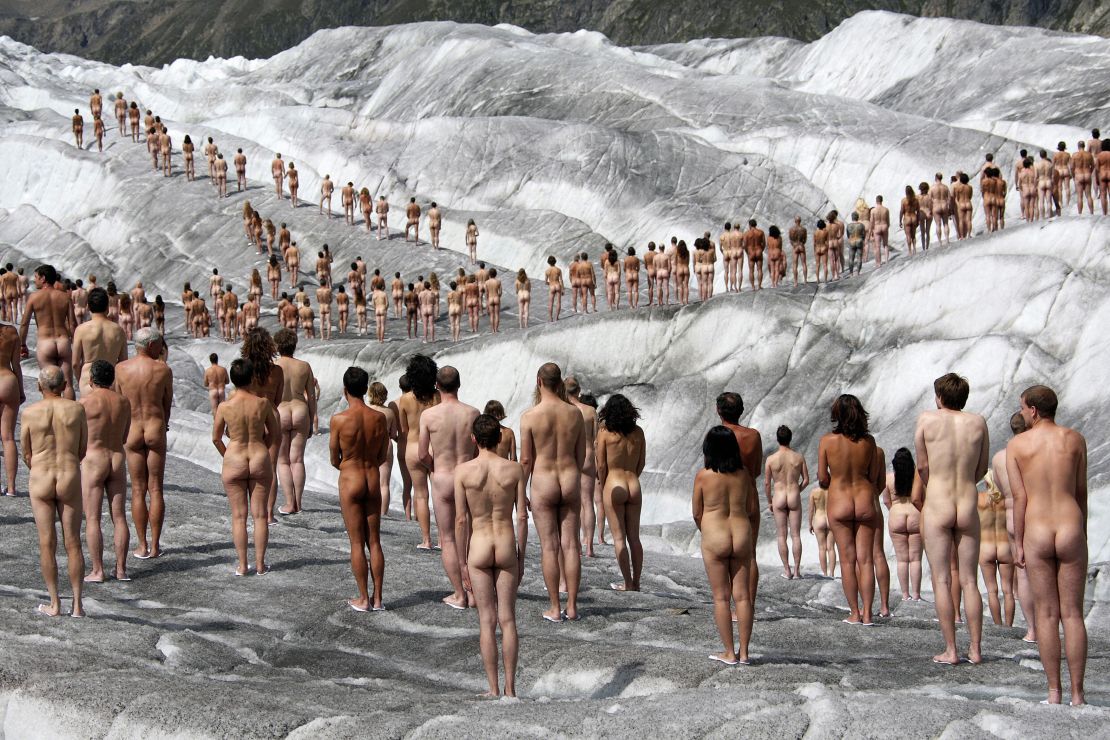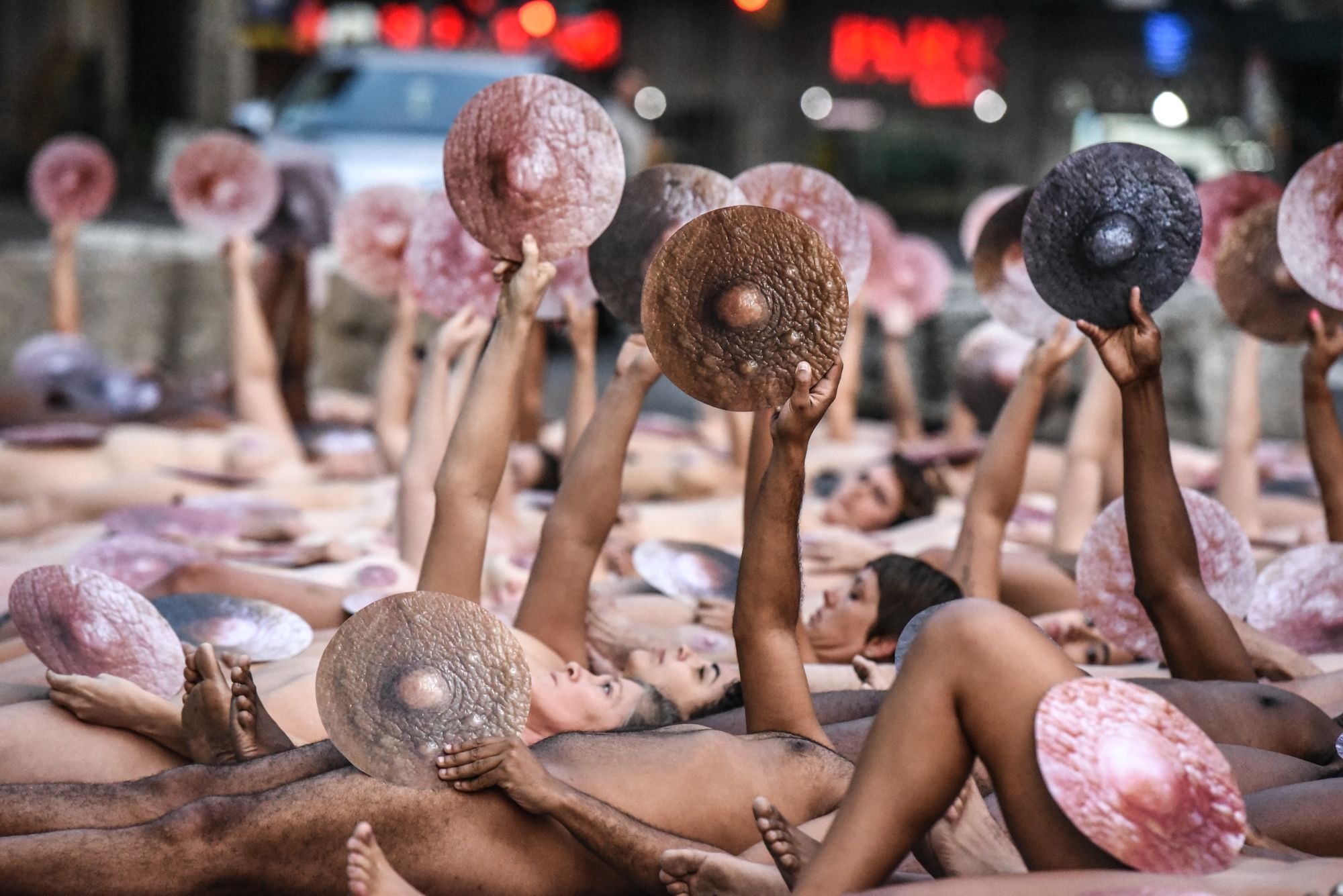Facebook has agreed to meet with anti-censorship campaigners and figures from the art world amid a growing row over its policy regarding artistic nudity.
The media giant’s announcement comes days after a nude protest outside its New York headquarters under the banner #WeTheNipple, co-organized by the National Coalition Against Censorship (NCAC) and renowned American artist Spencer Tunick.
Around 125 demonstrators lay naked in the middle of the street last Sunday with images of male nipples covering their genitalia, in protest against what they perceive as censorship by the media giant.
A Facebook spokeswoman has subsequently confirmed to CNN that they have “agreed to meet with the National Coalition Against Censorship and other stakeholders.”
“Our conversations with the National Coalition Against Censorship preceded last weekend’s demonstration, and will continue on long after. It’s important for us to hear directly from different communities who use Facebook and Instagram,” she added.
The NCAC released a statement in the wake of Facebook’s announcement, stating that the company’s policy team had committed to “convening a group of stakeholders including artists, art educators, museum curators, activists, as well as Facebook employees,” with the goal of exploring how to “better serve artists.”
The campaign group said that participants in the meetings will discuss the issue of “nude photographic art,” and warned that Facebook’s current policy banning nude images is unduly harming artistic expression.
“The ban disproportionately affects artists whose work focuses on already-marginalized bodies, including queer and gender non-conforming artists,” the group said.

The NCAC also noted that the ban prohibits galleries and museums from promoting exhibitions featuring nudity.
Facebook told CNN, however, that it has not pledged to update its policy, but rather intends to learn more about the group’s concerns surrounding censorship.
The social media giant previously updated its policy in April 2018, permitting paintings and sculptures which depict nudity to be displayed on its platforms. Fine art photographs which contain nudity nevertheless remained banned.
The revised policy also continued to prohibit images depicting female nipples except under specific contexts, despite implementing no such bans on male bodies.
“While we restrict some images of female breasts that include the nipple, we allow other images, including those depicting acts of protest, women actively engaged in breast-feeding, and photos of post-mastectomy scaring,” Facebook’s community standards says.
“We also allow photographs of paintings, sculptures, and other art that depicts nude figures.”
The NCAC launched its #WeTheNipple campaign in protest over Facebook’s updated policy, which culminated in its nude demonstration last week.
Members of the women’s rights group Grab Them By The Ballot also took part in the demonstration; the organization said that its participation was aimed at “challenging the censorship of female bodies.”
The group’s founder, Dawn Robertson, told CNN that despite Facebook’s updated community standards, its nudity policy continues to have little consistency.
“It’s like playing Russian Roulette,” she said. “I never know, when I post, whether they’re going to take it down.
“Facebook is dictating how the world views the female nude body, and they’re treating it like it’s a crime and it’s shameful. Something has to be done. They have way more power than they should.”
